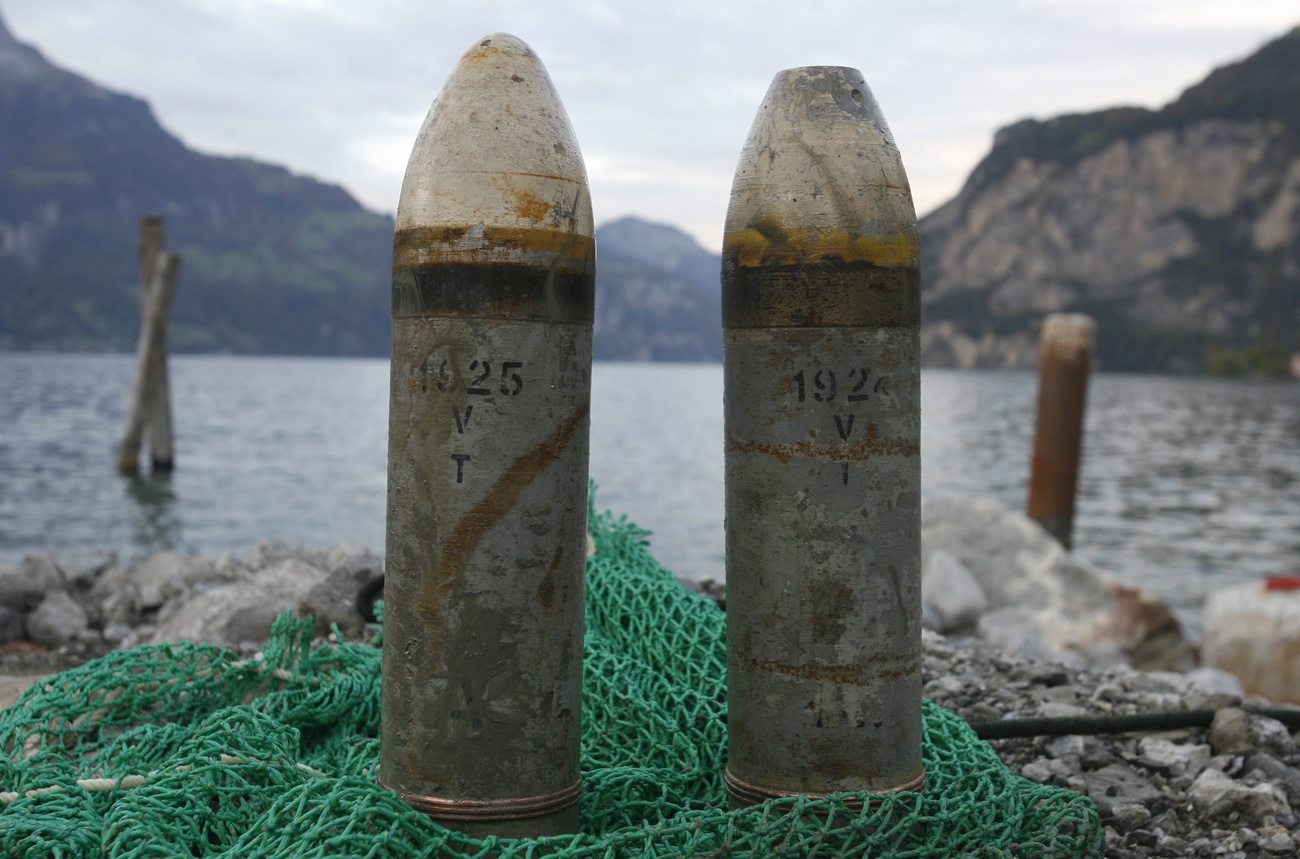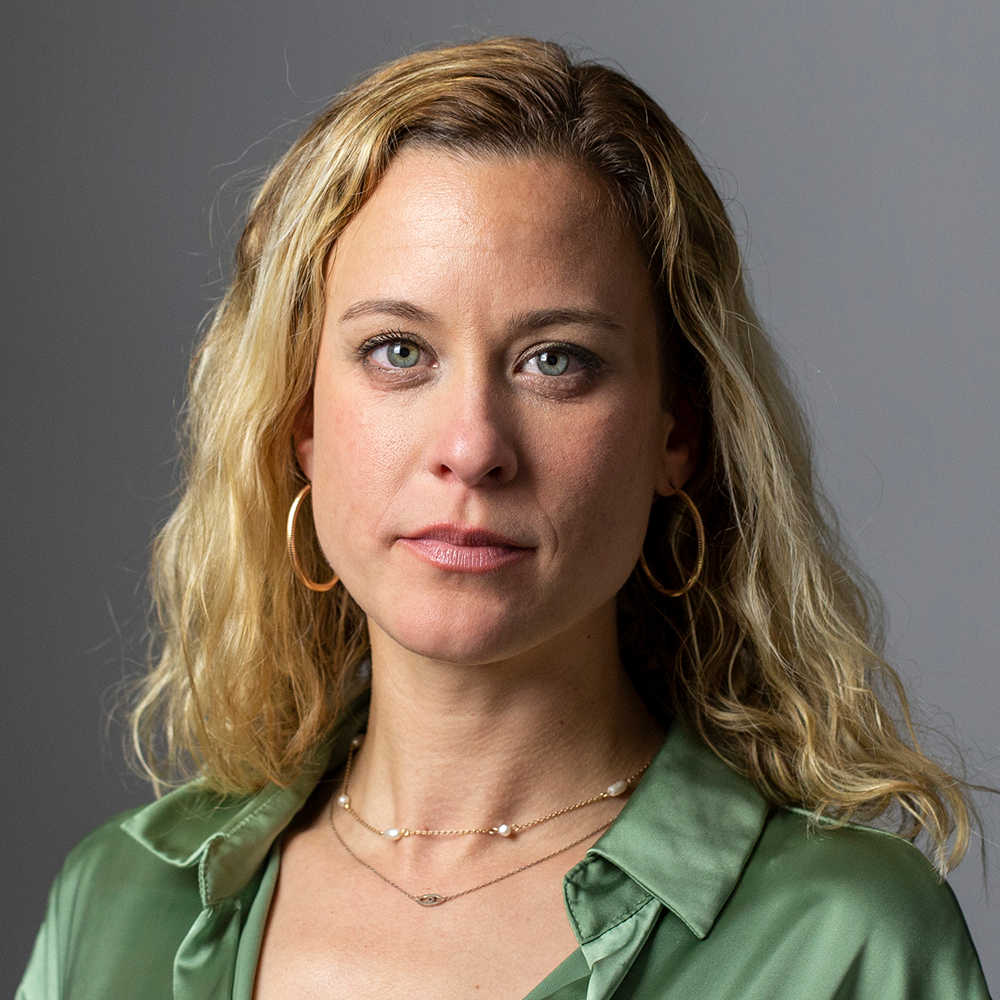The films of Swiss director Alain Tanner: ‘tailor-made for the age of Trump’

The work of the Swiss filmmaker Alain Tanner (1929-2022) is being rediscovered thanks to the restoration efforts of the Cinémathèque Suisse. Film critic Cici Peng reflects on how Tanner’s oeuvre is still relevant today.
At the 77th Locarno Film Festival’s packed screening of Tanner’s Jonah Who Will Be 25 in the Year 2000 (1976), the Mexican director Alfonso Cuarón spoke about the enduring effect Tanner’s films left on him as a young film student – especially Jonah, with its profound discussion on the possibility of political resistance: not in grand gestures, but in small everyday actions.
Cuarón named his first son Jonah after the film’s titular figure and speaks about a film he wrote, closely modelled on Tanner’s masterpiece, but was never made. Yet, he insists it was the most joyful film to write.
The restoration of Tanner’s films by the Swiss Film Archives (Cinémathèque) comes at a particularly prescient time. In 2017 the film critic John Powers wrote in Vogue that “Alain Tanner’s work feels tailor-made for the age of [former US president Donald] Trump. At once funny, sexy, and brainy . . . his movies tackle questions that most of us are currently facing: Is there any way of escaping a world based on money? How do you handle the disillusionment of watching history move in the wrong direction? Where do you find freedom in a society that goes against your deepest dreams?”
At a moment of political disillusionment, of a turn to fascism across the world, and the increasingly moral emptiness of politicians, Jonah appeals to the possibilities of living radically within the strictures of an increasingly exploitative capitalist system.
Tanner’s little prophets
Centring on eight characters, the film does not choose the anarchist or the “exceptional” leftist figure to tell its story. Instead, our protagonists grovel through everyday life like the rest of us: Marco (played by Jacques Denis) is a history teacher who subverts traditional teaching methods in a rural classroom; another man, Mathieu (Rufus), finds work on a farm as his wife (Myriam Boyer) plans to have another child; the farmers (Dominique Labourier and Roger Jendly) stick to traditional modes of farming, refusing to sell any produce grown with chemicals and pesticide at the local farmer’s market; a proofreader (Jean-Luc Bideau) secretly thwarts land speculators’ plans to acquire local communities; his love interest (Myrian Mézières) imagines the possibility of radical tantric sexual desire; a young cashier Marie (Miou-Miou) gives unauthorised discounts to the elderly and frequently brings groceries to an older neighbour.
Tanner dubbed the characters his “little prophets” as they live through a disillusioned moment – the suburbs and city of Geneva in 1975, facing imminent precarity – both from unemployment and from being employed within prescriptive and hierarchical mind-numbing jobs.

More
The buried treasures of Swiss cinema
The film is composed of long takes while the use of archival newsreel footage, dream sequences and rapid editing between certain sequences thwarts a complete sense of realism. Nevertheless, despite obvious aesthetic parallels to Jean-Luc Godard, Tanner’s form of storytelling is distinguished from his fellow radical Francophone filmmakers post-1968.
In an interview with Cinéaste Magazine in 1980, the English art critic and poet John Berger, Tanner’s frequent collaborator (Jonah was their final collaborative film) said: “My own formulation about Godard is that he is the great film critic of our time, but, unlike most film critics, instead of writing his criticism in words, he makes films which are criticism of film. […] Alain, on the other hand, is essentially a storyteller – it’s a different function.”

The politics of small gestures
What makes Tanner’s film so compelling is the small gestures of politics beyond a single theoretical realm. In Jonah, labour, politics and play blend into one another. Work appears like play, while play becomes crucial to Tanner’s politics. Throughout the film, the camera circles the characters’ dinner conversations, whether they be talking about sex or about living costs, suggesting that conversation, commune, exchange and, of course, food is where all political discussion and organising begins.
In one scene, Mathieu asks the children a series of flippant questions while teaching: “Does the wind feel the clouds? Can water feel? Does the sun know it’s called the sun?”; while in another, Marco turns the classroom into a sort of play kitchen – teaching history through the symbolic links of a blood sausage.
The film brings back childlike wonder and laughter into the world of adults – a crucial curiosity that is needed to question and imagine new worlds.
Here, adult work often resembles a kind of play. Mathieu stands atop a mountain of manure professing “I’m the king of shit” while Marie the cashier “plays” at her work – eyeing people up in order to fatefully decide who deserves a “discounted” order. When she visits her neighbour to deliver his groceries, they frequently engage in a role play of their past memories, frequently funny, but at times tragic, when they recreate her memory of life in prison.

Toying with the camera
Even the camera is at play for Tanner. Shots are held often slightly too long or cut off just before the viewer anticipates it. The camera movements also jar the viewer’s expectations: moving when the characters remain still, or remaining still as they move off screen. Here, Tanner collapses both structural and aesthetic expectations – instead, spaces collide, characters and their sense of the world are constantly poked at and put into question.
Although the film characterises many of the problems that we still face today, such as rising living costs, dogmatic school systems and food produce loaded with chemicals, the film also offers hope by looking at the possibility of building anew.
Throughout the film, the dynamics of learning are put at the forefront. Children learn to draw, sing and play on the farm. Many scenes are staged in a classroom – where often the blackboard is not in use, and instead of conventional silence, the classroom is filled with voices joking and laughing. Frequently, Marco brings in others to teach the children – he brings in Marie, and the students question her about the precarity of her work and in essence learn about class and gender struggles by listening to her testimonies.

By inviting alternative modes of pedagogy, Jonah exposes the ideological apparatus embedded within the bourgeois conception of the schooling system – stimulating competitive spirits through grades, or the exclusion of those who are considered “alien’” from society.
Here, instead, the students and Marco, their teacher, exist on equal ground. When Marco asks the students to reveal something about themselves, they insist that he must be ready to respond with his own vulnerability. Reciprocity and non-judgmental vulnerability are the foundations of an alternative schooling system.
Cycles of hope and disappointment structure the film; the chorus of voices echo from their world into our present. Jonah looks outwards and sees both fresh pastures and the apocalypse.
Cici Peng is a film journalist, programmer, and producer based in London. She has written for the Financial Times, TANK, LWLies, Dazed & Confused, and i-D. She has programmed screenings and events at the British Film Institute, Institute of Contemporary Arts, and the Barbican among others. She is currently part of the preselection committee for New York Film Festival’s Currents shorts.
Edited by Virginie Mangin and Eduardo Simantob/ts

In compliance with the JTI standards
More: SWI swissinfo.ch certified by the Journalism Trust Initiative








You can find an overview of ongoing debates with our journalists here . Please join us!
If you want to start a conversation about a topic raised in this article or want to report factual errors, email us at english@swissinfo.ch.